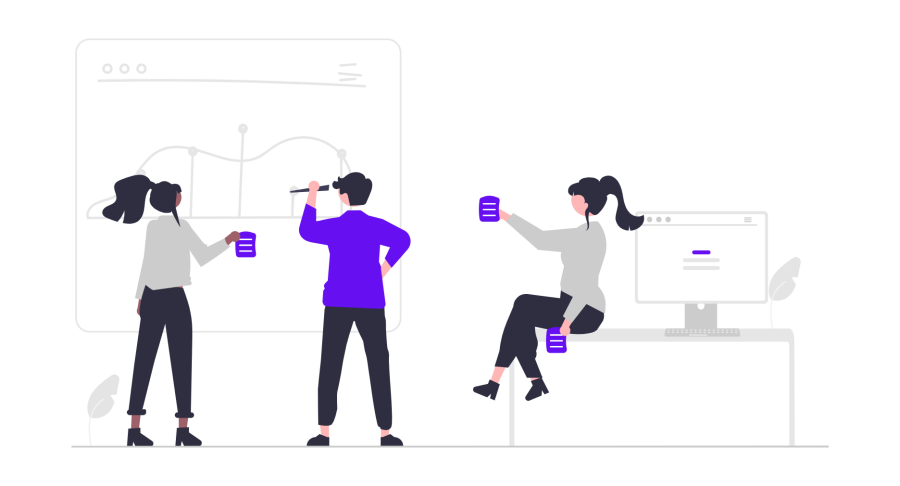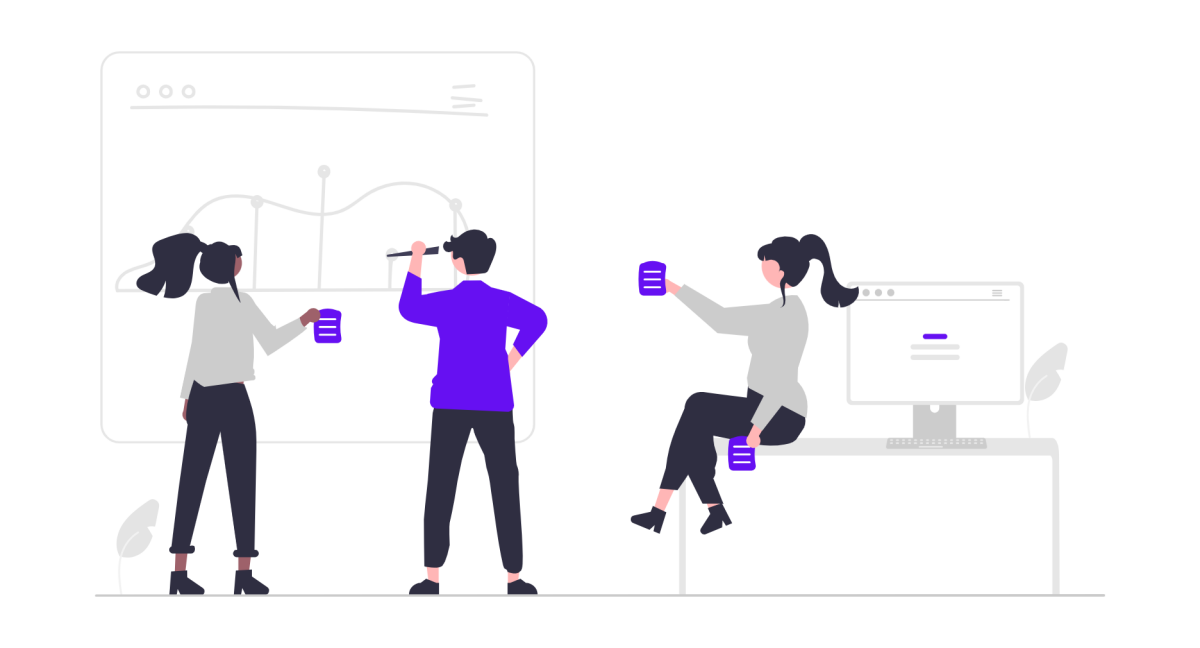We often talk about the future of project management. But what exactly does that future, which we all anticipate, look like? What are its outlines, and what are the details? If we were to ask as many project management specialists as possible, we would likely get just as many different perspectives. And yet, there are some universal expectations around which we can all unite. It is clear that artificial intelligence is increasingly becoming a persistent part of everyone’s daily life, regardless of the field in which we operate. Yes, project management is no exception. Some processes are already underway, and we are yet to witness others.
Let us imagine Alex, a project manager from the future. What is Alex’ daily routine, and what are their responsibilities? Certainly, the project manager of the future dedicates more time to mentoring and supporting their team. Alex has the opportunity for more meaningful communication with stakeholders and clients, as well as for creating and fostering a work culture characterized by efficiency and productivity.
Why is Alex not constrained by the deadlines and challenges that concern us as project managers today? Does this mean that deadlines in the future will no longer be an issue? Will projects not lag behind, exceed their budgets, or fall into the abyss of total failure? Of course, the future will not be so idyllic. However, we can expect greater involvement of artificial intelligence in optimizing all work processes related to the development, execution, and completion of successful projects.
How Can Alex Leverage the Support of AI?
We have high hopes for the ways in which AI will revolutionize work processes, mechanisms, and strategies. For our protagonist from the future, fully utilizing new technologies would mean that any project currently doomed to delays, redefinitions, or even complete failure could, in the future, be easily adapted and updated with the help of AI, ensuring its successful completion. Moreover, every member of the team would be promptly informed of any updates or changes to the plan through automatic notifications. Clients would also receive the necessary information about changes in direction and expected outcomes.
Alex would have access to progress information on subtasks and the expected benefits of each step, anytime and anywhere. Key performance indicators would be just a click away, and Alex could receive in-depth analyses directly via email at any moment. In addition, Alex could monitor the individual performance and activity of each team member.
Alex would receive timely information about any potential risks, along with suggestions for possible solutions, prioritization of tasks, or recommendations for changes in project management methodology. Furthermore, Alex could easily assign new priority tasks to the appropriate specialists on the team. For example, generating ideas for blog posts and social media content for the upcoming month based on performance analyses from previous months, or quickly translating existing posts. Alex might also request additional information on a given topic from multiple online sources. Why not have the collected information organized in detail into a table, divided into thematic rows and columns? And all of this could happen within minutes. Yes, working on projects will certainly be easier for Alex of the future.
The truth is, it is not just Alex who can benefit from AI support. That could be you! And there is no need to wait for a distant future. AI is already here and is transforming the way we work and enhance our efficiency. Artavolo has already successfully integrated numerous AI-powered functionalities that are not only innovative but also incredibly useful.
Let us return to the present moment...
Project Management Today – A Quick Overview
According to data published by ClickUp, nearly $48 trillion is projected to be invested in projects globally in 2024. Despite this impressive figure, 70% of all these projects fail to achieve their planned outcomes or fail entirely (TeamStage). The Standish Group has found that only 35% of global projects can be deemed successful. Among the main reasons for the failure of many projects are poorly defined goals (ProProfs) and exceeding budget limits (TeamStage). These and many other challenges can be promptly identified or entirely prevented with the help of AI. Nevertheless, according to a Team Stage study, 9.9% of every U.S. dollar is lost due to inefficient project management, which includes failing to leverage the full potential of modern technologies such as generative AI, machine learning, natural language processing, and big data.
There is no doubt that modern technologies like AI hold the potential to significantly increase the chances of success for any project. Yet many companies still live idyllically and carelessly in the "analog era," relying daily on spreadsheets, slides, and other technologies that have seen little progress or transformation in the past decade. For many companies, the success of a project is still measured by meeting deadlines and staying within budgets. However, in an environment where projects, requirements, workloads, and expectations change dynamically, these indicators and tools are insufficient, and quick adaptation and flexibility become essential.
AI is here to transform project management. Let’s examine some of the anticipated changes AI is expected to initiate in the coming years.
Better Prioritization
The ability to prioritize is closely tied to the ability to make accurate predictions. According to Harvard Business Review, AI’s prioritization functionalities will enable it to identify, with great accuracy, which projects and tasks are likely to bring the greatest advantages and benefits to a company, taking various patterns into account. This would mean faster identification of projects that are easier to execute because the right fundamentals are already in place, pinpointing projects with higher success potential, more precise predictions of possible risks and challenges, and the complete elimination of human subjectivity.
Optimizing the Work of the PMO (Project Management Office)
AI has the potential to completely redefine how the PMO operates. This includes enabling better monitoring of all projects, quick and accurate identification of problems, automation of routine tasks such as data collection, analysis, and reporting, gathering feedback, more precise selection of suitable project management methodologies, ensuring compliance with standards, and more.
Improved Project Definition and Planning
To date, defining tasks and projects, planning them, and analyzing results are time-consuming processes. But all these activities can be fully digitized and optimized with AI. From collecting information and data to generating ideas, summarizing the collected data, organizing it into tables based on specific criteria, translation, and style optimization, all these processes can be supported and executed by AI. Additionally, AI can be used to identify risks, potential repetitions, errors, inaccurate or incomplete information, and to create detailed action plans and schedules.
Virtual Assistance
One of the main advantages of AI in its role as a virtual assistant is its ability to easily detect patterns and learn from previous actions, used or requested information and data, and the overall context of a project. In this way, AI can capture vital information for each project or task.
According to the Project Management Institute, as of 2023, only 23% of project managers use AI in their work. However, Gartner predicts that this trend will soon evolve significantly, with 80% of project management tasks expected to be performed by AI by 2030. Additionally, 82% of project managers believe that AI will significantly change their work in the next five years. Markets and Markets reports that AI adoption is growing annually at an average rate of 17.3%.
A solid foundation has already been laid for the further implementation of AI in the work of project managers, and this change is far from surprising. According to Scoop Market, AI increases the chances of project success by 25%. Among project management departments that have successfully integrated AI into their workflows, 58% of projects are of higher quality, and 63% benefit from better resource allocation (Project). Project related costs have also decreased by an average of 20% (Deloitte).
Artavolo's Role in These Changes
Artavolo has successfully adapted some universal AI functionalities designed to enhance productivity, efficiency, and quality while saving time, regardless of the industry in which you operate. Here are some innovations from Artavolo that you can take advantage of:
- AI Field - This functionality allows you to integrate fields into your tables where you can process information and data using AI, including generating ideas and suggestions, translating text to or from a foreign language, and analyzing information.
- AI Popup - This feature is now available in the edit dialog, enabling you to use AI for enhancing text fields, including contextual text optimization, grammar and style improvements, content summarization, and multilingual support.
- Import of Data from AI-Generated Sources -This functionality makes it easy and fast to import information and data from AI sources into your work tables and Kanban cards in Artavolo. You can import not only statistical data but also content such as product descriptions, project outlines, customer reviews, and more. Currently, you can import data from ChatGPT directly into Artavolo, and soon, you will also be able to do the same from other AI platforms like Gemini and Microsoft Co-pilot.
- AI Notes - This feature allows you to create notes with the help of AI, replacing the selected text in the note with AI-generated content.
Take advantage of the power of AI and the endless possibilities of Artavolo today!

